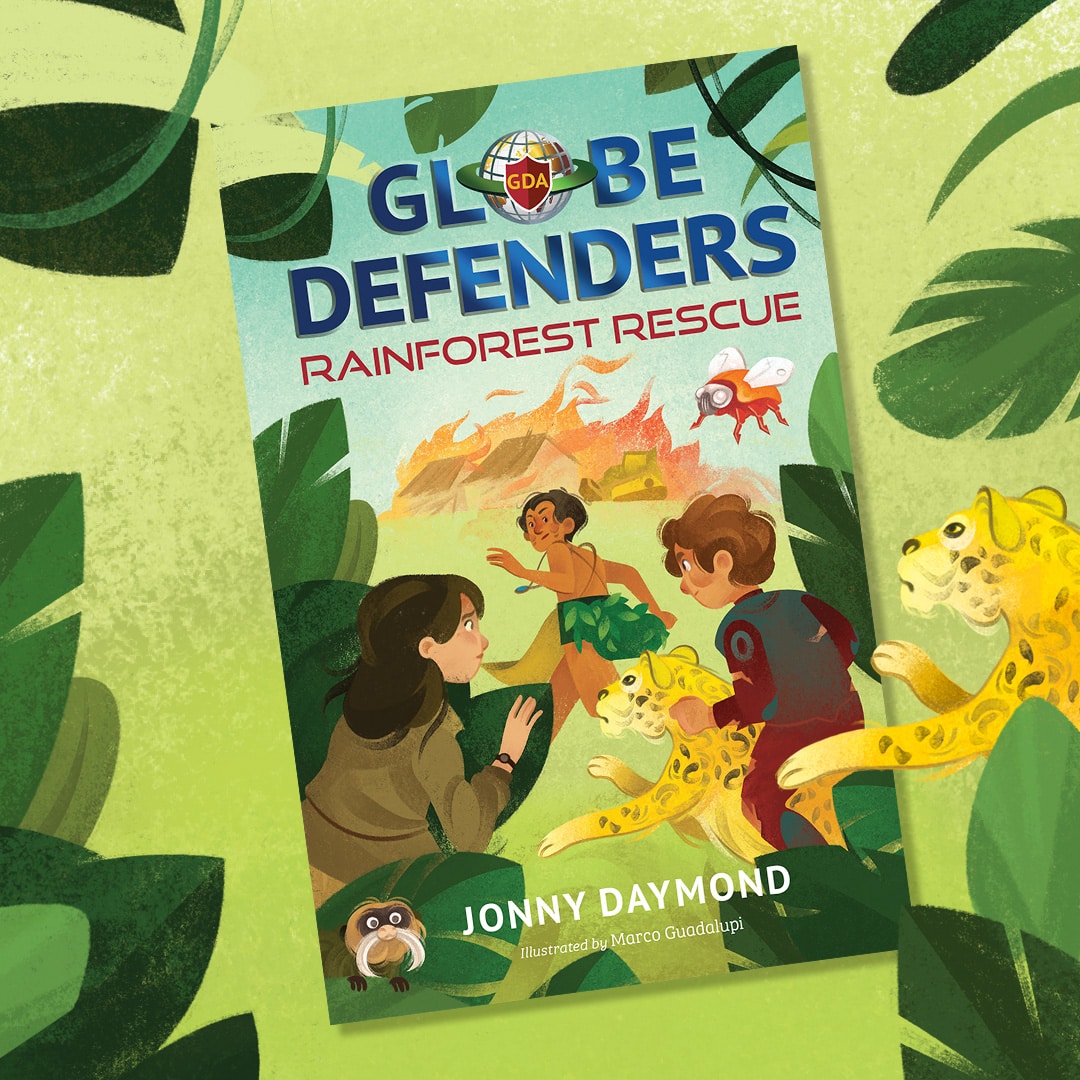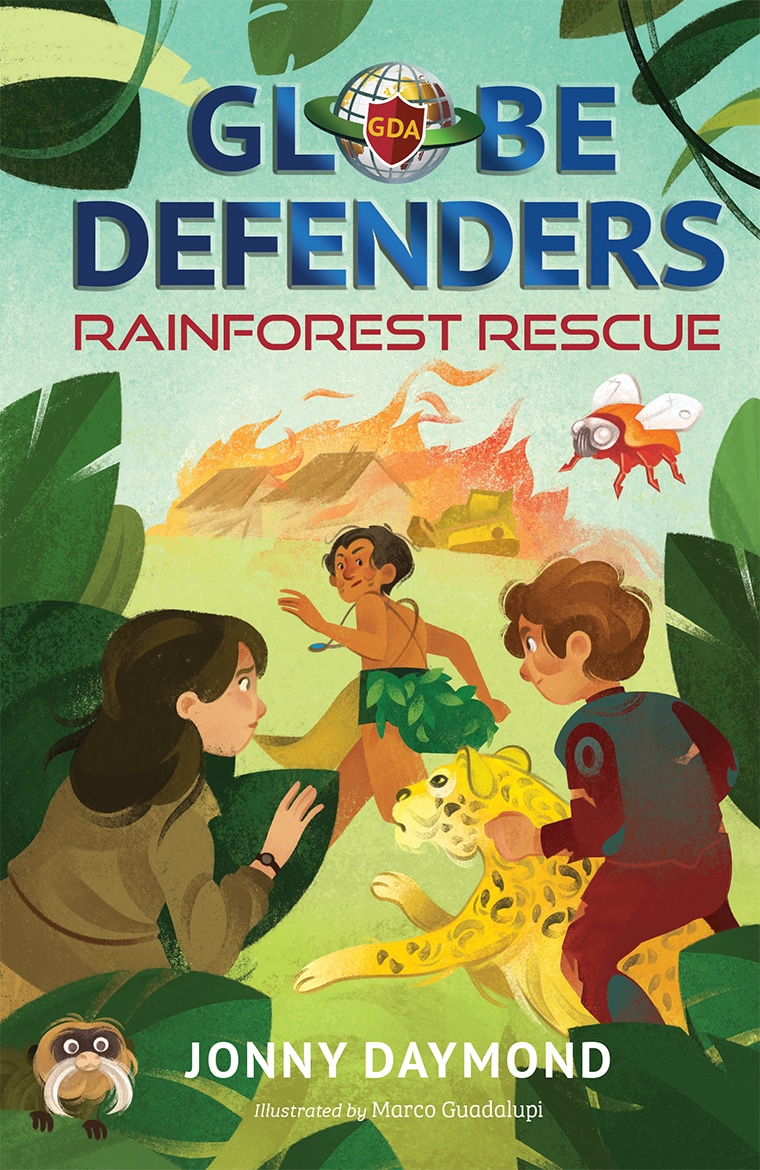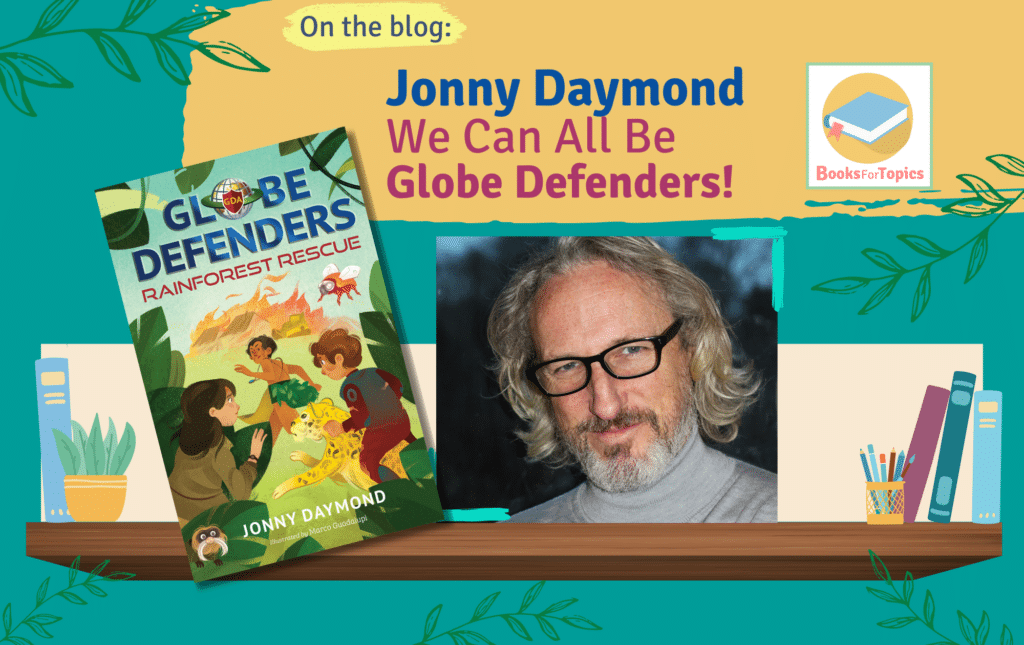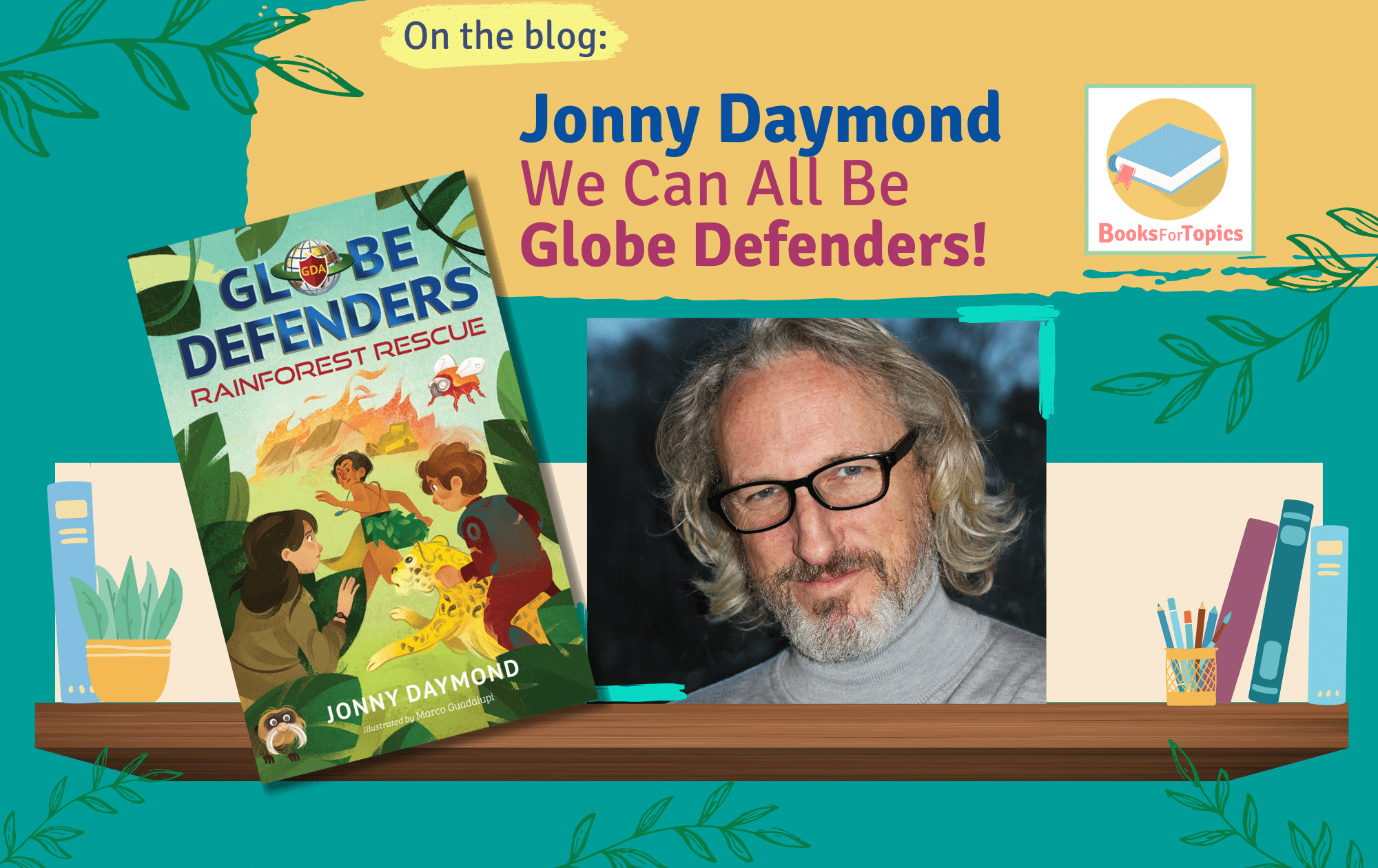 Guest Post: Jonny Daymond
Guest Post: Jonny Daymond
Author of Globe Defenders: Rainforest Rescue
We Can All Be Globe Defenders
I’ve never been to space. But I’ve read about the experiences of people who have and the life-changing effect of seeing our home planet from outside the atmosphere.
Sure, there are other planets and as our understanding of the universe deepens and our ability to detect other potential life-supporting globes increases, we’ll no doubt be finding exciting Goldilocks zones all over the place.
But… of course, getting to any of these is far, far beyond our current capabilities and may always be so.
For the realistically foreseeable future, the only home we have is planet Earth.
So we need to look after it much better than we have been.
And the truth is with a bit of care and attention we can all be Globe Defenders. Here are a few things that we can all do to help our home world.
Consume less
One of the biggest drivers of climate change is consumption and the energy used to make the things we buy.
So the first thing we can do is buy less. When you are looking to buy something whether it’s a chocolate bar or a game or whatever instead of just thinking about the price of it try and imagine the cost in terms of energy and production. How many ingredients were used? How much processing was involved? How much packaging is there? How far has the product travelled to get to you?
Of course, you won’t have the answers to all these questions but just thinking in those terms will help you to focus on whether you need the thing you are holding in your hand that much.
Walk more
This is a simple one that we can all do and encourage our friends and family to do as well. A lot of the journeys we make in our lives are short ones. So, if the place you need to go is 30 minutes or less walk away why not do that rather than take the car? Not only is it better for the planet, it’s also better for you!
Read more
Yes well as an author I would say that, wouldn’t I?
But seriously – you’ll burn a lot less energy reading a book than watching your 85-inch TV!
It’s also better for you and for authors!
Understand your energy consumption
Following on from the point above, do you know how much energy different things use in your home?
What uses more? A kettle boiling for a few minutes, or a lightbulb left on all day.
Why not make a list of things you use around the house or at school and do some research to find out how much energy they use? Then you could rank them in order of the most energy-hungry. The results might surprise you.
Once you have this you could try living for a week in the most energy-efficient way you can. How does it affect your life? Maybe you could make a few small, permanent changes that would make a big difference to your energy consumption.
Go wild
I remember when I was very young in the 1970s (yes, I’m seriously old) and we had a ‘weed patch’ in the garden at home. This was just an area that my parents left wild. It wasn’t particularly big, but it would be home to all sorts of creatures and plants that wouldn’t survive in a perfectly manicured garden.
If you set aside a small patch of your garden, or school field and let it grow wild what happens? Keep an eye on it over time. What different things do you notice? Think of it like your own piece of jungle.
You can plant some wildflowers in there too if you like. The bees love them!
Discover more about Jonny Daymond and the Globe Defenders: https://www.jonnydaymond.com/
Thank you to Jonny for visiting our blog this week.
 Globe Defenders: Rainforest Rescue by Jonny Daymond and Marco Guadalupi is publishing 21st March and is available via Amazon or Bookshop.
Globe Defenders: Rainforest Rescue by Jonny Daymond and Marco Guadalupi is publishing 21st March and is available via Amazon or Bookshop.
You might also like our booklists featuring more children’s books about the environment or recommended children’s books about rainforests.
Where next?
> Visit our Reading for Pleasure Hub
> Browse our Topic Booklists
> View our printable year group booklists.
> See our Books of the Month.










